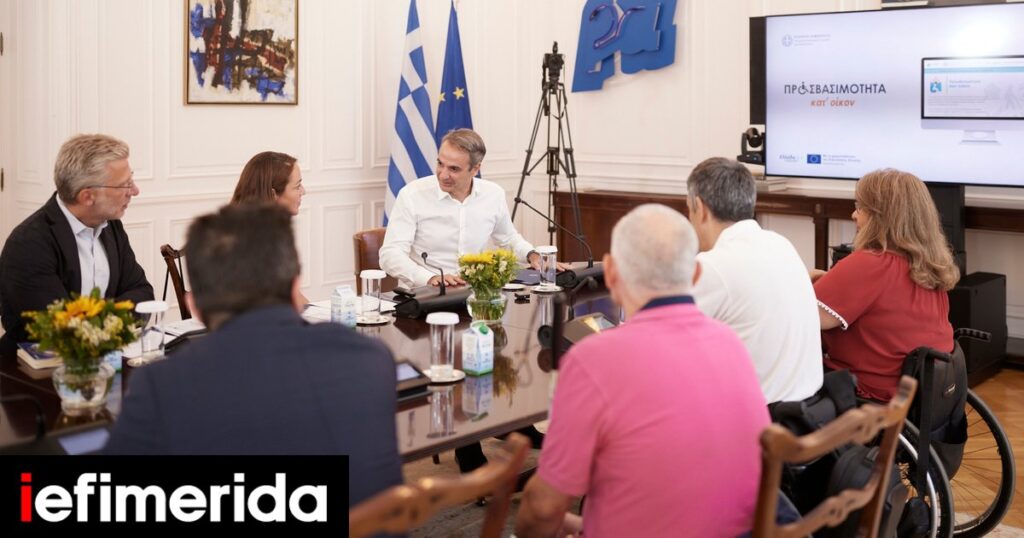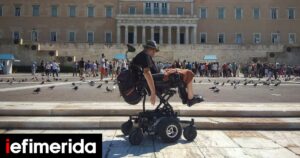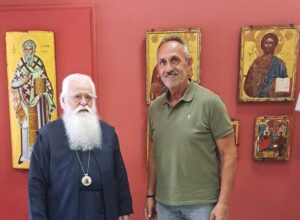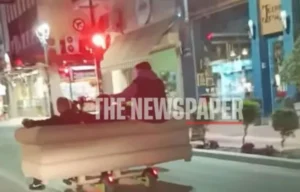Prime Minister Kyriakos Mitsotakis met at Maximos Mansion on Monday with reprsentatives of disabled people to discuss progress in the ‘Home accessibility’ program.
The program subsidizes work that make homes or workplaces more accessible, such as the construction of ramps or the installation of stair lifts, and generally adapting homes to serve physically impaired people better.
According to government sources, the prime minister revealed that the program’s budget would be boosted with state funding of up to 10 million euros, reaching a total of 34 million euros, in order to serve more citizens as applications surged online. Specifically, the new platform https://prosvasimotita.minscfa.gov.gr/ that went live last week received nearly 2,500 applications within the first 24 hours for accessibility projects, corresponding to almost the entire original budget.
During the presentation of the program’s progress by Social Cohesion and Family Minister Domna Michailidou, it was noted that projects that would be funded were selected following consultations with organizations of disabled people, in order to have the maximum possible impact on people with chronic conditions.
The ‘Home accessibility’ program includes work in main and secondary (holiday) homes, owned or rented homes, common spaces in apartment buildings, and work places, and includes financial and degree of disability criteria. Michailidou added that the above platform “received over 4,800 applications within five days,” which prompted the PM’s decision to boost the ‘Home accessibility’ budget.
Speaking about the program, PM Mitsotakis noted, “Our home is our refuge. Especially for our fellow citizens who have a disability, the ability to be able to move comfortably within their own homes, without feeling they are compromising or lowering their expectations, is extremely important. And I am happy we are able to come as a state and cover this significant need of yours by utilizing European as well as national funding.”
The premier also said more actions would be forthcoming, including subsidies for electricity-powered wheelchairs.
Response
Responding, representatives welcomed the assistance, calling it a long-term demand that more than met expectations, through simple procedures.
“It is a program that we have been requesting for years, both the national federation of mobility disabled people, and our associations, and in our conversations. It is extremely important, because our disability is determined by accessiblity,” said Korina Theodorakaki, secretary of the National Federation of Mobility Handicapped (EOKA), adding that it is “a pioneering action and, we must say, it has never been done before.”
Christos Koromilas, member of the board of Faros Tyflon (Lighthouse for the Blind), a key organization for visually impaired people, said of the accessibility funding program that “it is the only program I managed to execute by myself, on my cellphone. It was so easy – three steps, all pre-filled, and all ready.”















